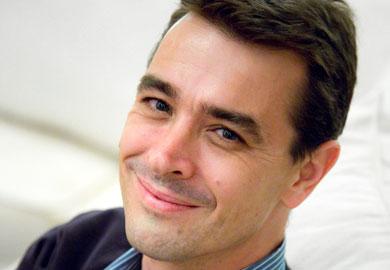"The world is getting better – but not fast enough"
Partnering for digital technology innovation | Dr. Wolfgang FenglerHow SDG data models can help peace operations
Driven by a sense that assumptions on trends differed from actual data and by a desire to replace purely theoretical and conceptual approaches with up-to-date numbers, Dr. Wolfgang Fengler recalls realising that it would be necessary to embed better data into the measurement of the Sustainable Development Goals (SDGs). One example is the World Poverty Clock that visualises how many poor people there are in the world at any precise moment in time. From this, he developed a sophisticated projection model to assess probable development by the SDG target date of 2030, concluding that the world is getting better but not fast enough.
Building on his experiences of measuring progress and making data on the SDGs easily accessible, Dr. Fengler talks about SDG 16 on Peace, Justice and Strong Institutions – the goal that relates most closely to mandated tasks in peace operations. He concedes that the higher number SDGs are not as straightforward to measure as, for instance goals directed at poverty, health or gender, where data is usually publicly available and there are commonly agreed definitions. Typically, data he used pertains to inequality or economic activity or demographics, but there is a trend towards using more big data and data from space, which – combined with existing data – allows for new analysis.
The data is bad, but it’s still the best possible.
SDG 16.1 aims to “Significantly reduce all forms of violence and related death rates everywhere.” Dr. Fengler explains how mortality and homicide rates might be compared to other global health risks and issues – either for one country or disaggregated to districts within countries. As the quality of data can vary in conflict zone, he suggests starting with reliable data, such as demographics, while other data can require triangulation and mathematical modelling. Finally, there are a host of initiatives that peace operations can look to and build on in the development field that can help them better understand conflict potential and conflict dynamics in a given mission area.
Download
IMAGES
- Author | Wolfgang Fengler priv.
- World Poverty Clock | worldpoverty.io, accessed on 22 October 2020
